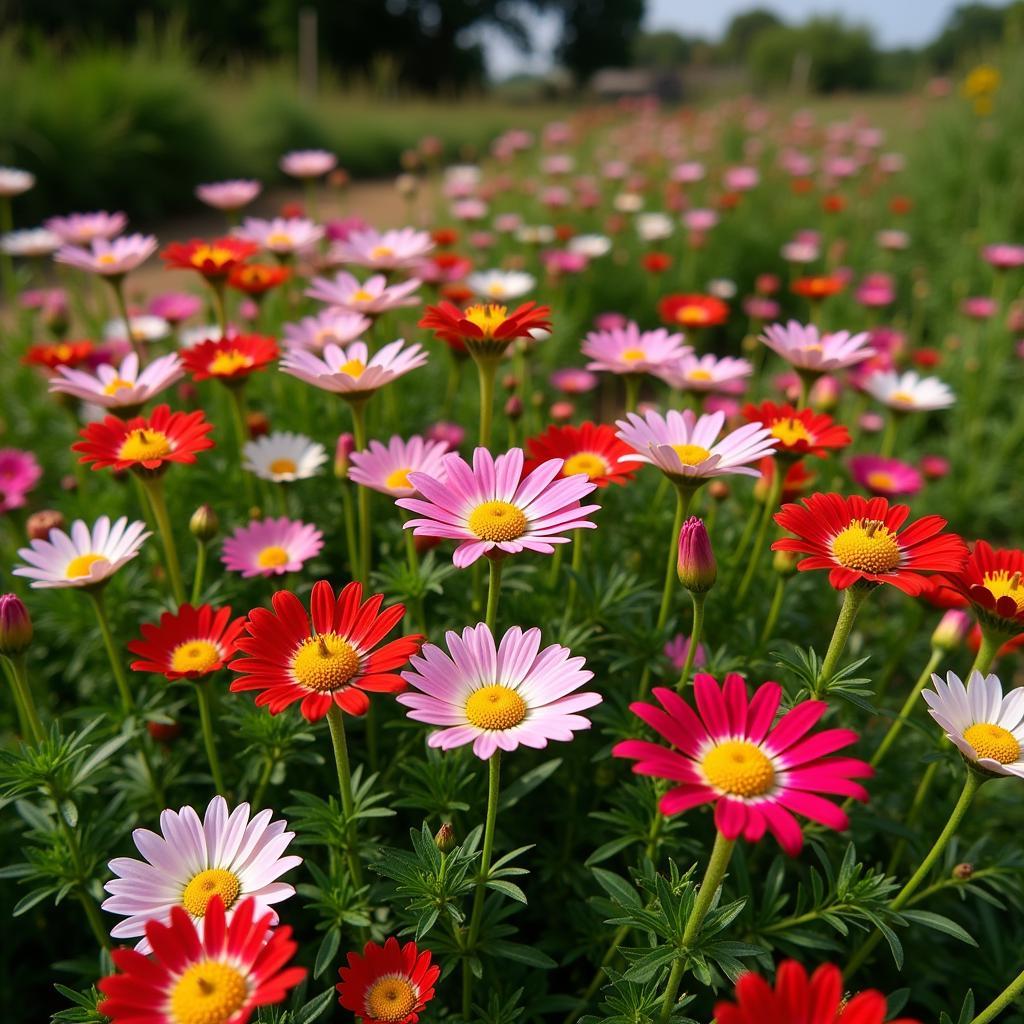The Tragic Truth of the African Black Rhino Extinct Status
The African Black Rhino Extinct status is a stark reminder of the devastating impact of human activities on wildlife. While not entirely extinct across the globe, the western black rhino subspecies was declared extinct in 2011, highlighting the precarious position of these magnificent creatures. Understanding the factors that led to this tragic loss is crucial in preventing similar fates for other rhino subspecies.
Delving into the African Black Rhino’s Decline
The decline of the African black rhino population is a complex story intertwined with habitat loss, poaching, and political instability. For centuries, these rhinos roamed vast stretches of Africa, but human encroachment has drastically reduced their natural habitat. As human populations grow and expand into rhino territories, these animals are forced into smaller and more fragmented areas, making them more vulnerable to threats.
The most significant threat, however, is poaching. Driven by the insatiable demand for rhino horn in some Asian countries, where it is falsely believed to have medicinal properties, poachers relentlessly hunt these animals. The illegal wildlife trade has decimated rhino populations across Africa, pushing some subspecies to the brink of extinction. Furthermore, political instability and conflict in some regions have hampered conservation efforts, allowing poaching to continue unchecked.
The declaration of the western black rhino as extinct sent shockwaves through the conservation community. It served as a wake-up call to the urgent need for more effective conservation strategies to protect the remaining rhino subspecies. While some populations are showing signs of recovery thanks to dedicated conservation efforts, the future of the African black rhino remains uncertain.
Is the African Black Rhino Really Extinct?
The term “African black rhino extinct” can be misleading. While the western black rhino is indeed extinct, other black rhino subspecies, such as the south-central and eastern black rhino, are still clinging to survival. These populations are critically endangered, meaning they face an extremely high risk of extinction in the wild. However, dedicated conservation programs, including anti-poaching patrols, habitat restoration, and community engagement, offer a glimmer of hope. These initiatives are crucial in ensuring that the tragic fate of the western black rhino is not repeated. You can learn more about the broader context of African wildlife on our page about African animal and plants.
What Can We Do to Help?
The fight to save the African black rhino is a collective effort. We all have a role to play in ensuring their survival. Supporting reputable conservation organizations, raising awareness about the plight of rhinos, and advocating for stricter laws against wildlife crime are all crucial steps. Learn more about the specific challenges facing this magnificent creature on our page dedicated to the African black rhino population. Every action, no matter how small, can contribute to the long-term survival of these iconic animals. We also have a comprehensive list of A to Z African animals which helps you understand the diverse fauna of the continent.
The Future of the African Black Rhino
The future of the African black rhino hangs in the balance. While the extinction of the western black rhino is a tragic loss, it also serves as a powerful reminder of our responsibility to protect the remaining populations. By working together, we can ensure that these magnificent creatures continue to roam the African savanna for generations to come. More insights into the extinction declaration can be found on our page about the African black rhino declared extinct. You can also explore our detailed article on the African black rhino.
Dr. Amani Jabari, Wildlife Conservationist, Serengeti National Park: “The extinction of the western black rhino is a heartbreaking loss, but it must serve as a catalyst for greater action. We cannot afford to lose any more rhino subspecies.”
Professor Imani Zuberi, Zoology Department, University of Dar es Salaam: “Protecting the African black rhino requires a multi-pronged approach, addressing habitat loss, poaching, and the illegal wildlife trade.”
Conclusion
The “African black rhino extinct” narrative, while partially true for the western subspecies, doesn’t encompass the whole story. The remaining subspecies are fighting for survival, and our collective efforts are crucial to their future. We must act now to prevent further losses and ensure these magnificent creatures continue to thrive in their natural habitat.
FAQ
- Are all African black rhinos extinct? No, only the western black rhino subspecies is officially extinct.
- Why are rhinos poached? Primarily for their horns, which are falsely believed to have medicinal properties in some cultures.
- What is being done to protect rhinos? Conservation efforts include anti-poaching patrols, habitat restoration, and community engagement.
- How can I help rhino conservation? Support reputable organizations, raise awareness, and advocate for stronger wildlife protection laws.
- Are there any successful rhino conservation stories? Yes, some black rhino populations are showing signs of recovery thanks to dedicated conservation efforts.
- What is the biggest threat to rhinos? Poaching and habitat loss are the primary threats.
- Is there hope for the future of the African black rhino? Yes, with continued conservation efforts and global cooperation, there is hope for the remaining subspecies.
Common Scenarios & Questions:
- Scenario: You see a documentary about rhino poaching. Question: What can I do to help stop this?
- Scenario: You’re planning a trip to Africa. Question: Where can I see black rhinos in the wild?
- Scenario: You’re researching endangered species. Question: What is the current status of the black rhino?
Further Exploration:
Explore other related articles on our website about African wildlife conservation and the threats facing endangered species.
Call to Action
For further information or assistance, please contact us:
Phone: +255768904061
Email: kaka.mag@gmail.com
Address: Mbarali DC Mawindi, Kangaga, Tanzania
Our customer service team is available 24/7.
